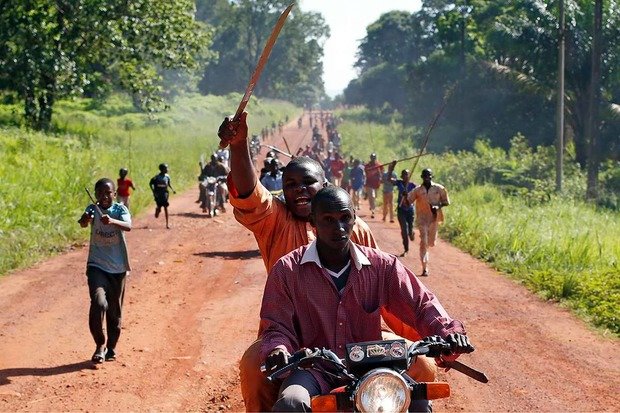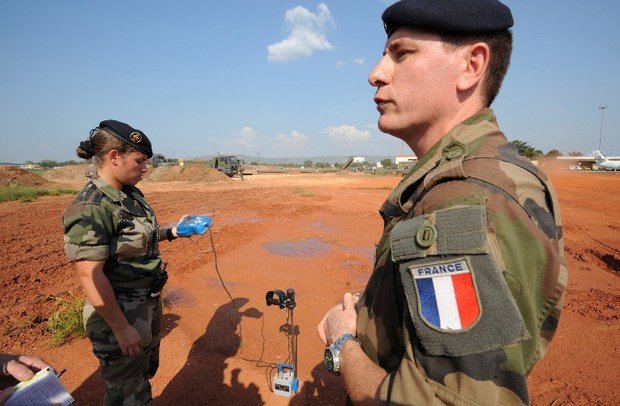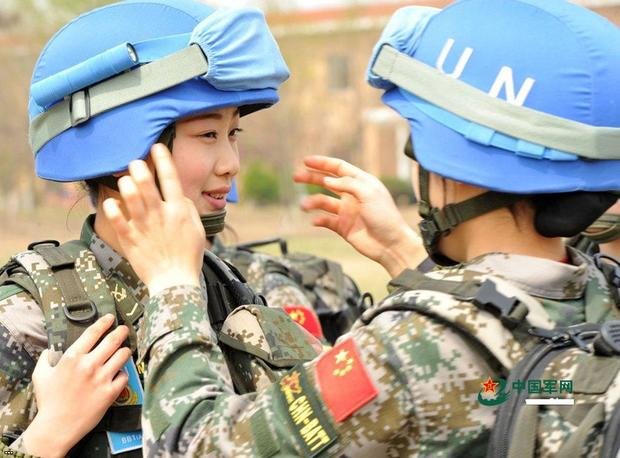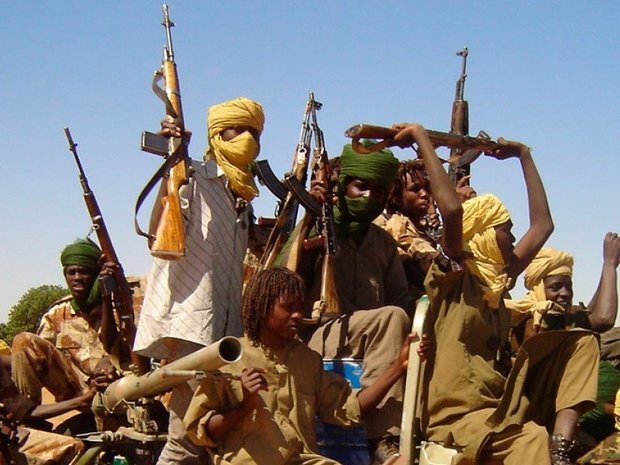'It is unlikely that local bandits have relation to the murder of Orhan and others...'
The column of a Kazan native, working in Africa, on the situation in the Central African Republic, where Russian journalists were killed
Three Russian journalists were killed in the Central African Republic: Orhan Dzhemal, Alexander Rastorguev and Kirill Radchenko, who went there to make a documentary about ''Wagner private military contractor''. After the incident, many openly stated: ''It was suicide to go in the CAR and with such purpose''. In order to understand what is really going on in the CAR and why the trip of journalists, which ended in the tragedy, is equated with voluntary settling of accounts with life, Realnoe Vremya turned to a Kazan native, not the first year working in Africa. Based on personal observations, he gives a detailed description of what is happening in one of the most unstable states of the continent.
''The current situation is the consequences of the hybrid war''
Much attention is being focused on the Central African Republic. Meanwhile, few people discuss how it has come to the current terrible situation. Why, in perpetual poverty and misery, even during the reign of the ''president-emperor'' — cannibal Bokassa, the people lived peacefully, the Christians and Muslims coexisted, at least in relative harmony (like in neighbouring Cameroon, DR Congo, even South Sudan).
There were conflicts, but they were smouldering, without inflaming.
The current situation is the consequences of the ''hybrid war'', which was unleashed at the time by the northern neighbour of the CAR — Muslim Chad. Which, taking advantage of the political crisis in 2013, put in the CAR ''its'' president, with the help of the ''Muslim rebel militia groups'' (Séléka) and the direct participation of the army under the guise of ''militia group''. There was about 30% of the Muslims in the CAR — a minority. And, apparently, many happily supported the ''new government'' and began to avenge past grievances and harassment. And, as usual in Africa, the massacre of Christians. Since then, the smouldering conflict has turned into a fire. There appeared the Christian movement of Anti-balaka, who began to eliminate the Muslims. The degree of mutual brutality can be judged by the video shot in 2013 during the massacre in Bangui, when a man in Muslim clothes is grabbed on the street, poured with gasoline and set on fire. And while the man is twitching in agony and death throes, a young black man with a machete cuts off the wrist of the still living and dying man, starts to tear it with his teeth, then raises it as a flag, running down the street, followed by an enthusiastic crowd, everyone is shouting, and the black man periodically get the pieces of meat from the cut wrist with his teeth…
Up to this day, in the crowd of Africans in the market in Bangui you will not see a single person in Muslim clothes. Muslims have been completely eliminated and driven to the north of the country. The president then lost control, fled back to Chad, and there was anarchy in the country. Which, in fact, has not been overcome.

''The current situation is the consequences of the ''hybrid war'', which was unleashed at the time by the northern neighbour of the CAR — Muslim Chad.'' Photo: ESP (stolica-s.su)
''In terms of resources, the French are not very interested in this country''
Thousands of victims, tens and hundreds of thousands of refugees to several million people. By the way, now the CAR is one of the most sparsely populated countries in Tropical Africa, with a large area…
As for the ''struggle for resources''. The CAR is very rich in minerals. But if you look at the map of Africa — the Central African Republic is in the middle of the continent, to the nearest seaport (Douala, Cameroon) it is more than a thousand km away in extremely unstable areas (even in generally stable Cameroon in the areas adjacent to the Central African Republic, there acts the Cameroonian branch of the terrorist organization Boko Haram). In Cameroon, there are several railway lines, but they do not reach the border with the CAR and in general for a long time are being on the verge of closing.
In addition, there is no infrastructure at all for industrial mining — no electricity, no roads, no corresponding airfields in the area of deposits. The country's only equipped airfield capable of receiving heavy transport aircrafts is located in the capital, Bangui, in the extreme south of the country. But the main deposits are located in the centre and in the north. The equipment is large, heavy, it is difficult to transport through African impassability of roads. All the more, in the conditions of chronic political instability, when any gang can at any moment attack the convoy. A hand drag cannot wash a lot of gold. All the more, it is impossible to extract diamonds manually. Theoretically, it would be possible to bring through Chad, but given the relations between the countries, it is hardly possible. Any attempt to reach an agreement with Chad, besides the central government, will automatically be illegal.
Besides, it is unlikely that the French curators will allow this. This region of Africa is the fiefdom of France. In 2013, the French sent even not the Foreign Legion, but regular troops, a battalion of paratroopers. Who then saved the capital from total plunder. The current president is sitting on foreign bayonets. Peacekeepers are useless, they more protect themselves. The French can really protect and repel, if necessary.

''This region of Africa is the fiefdom of France. In 2013, the French sent even not the Foreign Legion, but regular troops.'' Photo: factmil.com
Plus, all their ''elite'' studied in France. All special services, army, police are trained by the French. Even the uniform of the police of the CAR is the exact copy of the French one. By the way, emperor Bokassa fled to France in his time. Every next ''emperor'' knows perfectly that he will be accepted only there and given protection, if anything. The exception is a Muslim president, set by Chad in 2013 and escaped back to Chad. Plus, the CAR does not have its own currency. They use the CFA franc (Confederation of Francophone Africa), which is issued in France.
Despite the fact that the CAR is very rich in minerals, apparently, in terms of resources, this country is not very interesting for the French because of the lack of infrastructure and remoteness, and the general savagery of the population — in these places people are still afraid to be photographed. They believe it will attract evil spirits in some way. But also it is impossible to grant liberty — for political reasons.
Almost all of the same minerals are found in the neighbouring Democratic Republic of the Congo (the capital — Kinshasa). It is also a country that is not far from the CAR, but with a much more developed infrastructure and strong mining industry.
''The Chinese have long been actively developing oil in Chad''
Much is being said about Chinese penetration in Africa, about the ''growth of Chinese influence''. Actually, it's a little different. The Chinese go only to stable regions. And they have a very peculiar method of doing business. For example, in Chad, the Chinese have been actively developing oil for a long time. But they do not employ locals even as truck drivers, they bring their Chinese ones. In general, they reluctantly employ locals and only on a temporary dirty work. Everywhere they behave themselves isolated, create few jobs for locals. This cannot be called a strong influence.
Another example. When South Sudan in 2011 separated, the Chinese rushed there, hoping to stake out promising oil fields. They very actively developed. They opened big shops, hotels, etc. And in 2016, the president of South Sudan quarreled with his vice president, who also has his own army, and they staged a war with the shooting of tanks right in the capital, Juba. All the Chinese suddenly disappeared, they abandoned everything – derricks, shops, hotels. And they are coming back very carefully.

''Much is being said about Chinese penetration in Africa, about the ''growth of Chinese influence''. Actually, it's a little different. The Chinese go only to stable regions.'' Photo: planet-today.ru
''If white people are not alone, but in a group, no one will meddle in this — it is troublesome''
Is it safe for white people in Africa? In different regions the situation is different. In some regions it is quite safe – in Uganda, Rwanda, Ethiopia, Gabon, Cameroon, Namibia, etc. You can walk where you want quite calmly. There are less safe, but also relatively calm — Mali, Niger, Congo (Brazzaville), the same Chad. There is better to walk only during the day.
The list is rounded out by DR Congo (Kinshasa) and the Central African Republic. In general, the unluckier country is, the stronger there is dislike for white people. The inhabitants of the CAR blame exclusively French in all their troubles. The say, if it was not the French, they would live like in some Kuwait. Despite the fact that, as one colleague who lived and worked in Bangui for several years before all the events said: ''The Central African Republic is the country of evergreen tomatoes! Why? Because tomatoes do not have time to ripen — they are stolen!''.
So let's say, it is restless and uncomfortable for white people there. The hostility is in the air. It is better to walk in groups. They do not kill, but to rob is a holy cause.
White people are killed quite rarely, and usually accidentally — it makes no sense and it is unsafe because they'll begin to find the killers, and nobody wants that. But it is a different thing to rob and flee. Nobody will look for the robber. But if white people are not alone but in group, no one will meddle in this — it is troublesome. So it is unlikely that journalists were attacked by black bandits.

''It is hard to believe in the bloodlust of fighters of Séléka or Anti-balaka. They love to eliminate each other, but they are not interested in white people.'' Photo: polit.ru
''It is unlikely that local bandits are involved in the murder of journalists. Only if someone paid them very well''
It is hard to believe in the bloodlust of fighters of Séléka or Anti-balaka. They love to eliminate each other, but they are not interested in white people. What is more, the journalists had press cards — so they would be looked for — Séléka and Anti-balaka do not need unnecessary troubles. Oddly enough, they all care about their image, each of them acts as a ''defender of the people'' — each of his own. It harms them to kill white journalists interested in completely foreign (for fighters) topics.
As a rule, the locals try not to meet with white people if they do not touch them. They do not start a conflict themselves, but they also do not forgive insults, especially when there are a lot of them. But, again, it never comes to murder.
In Africa (everywhere), white people are still treated as people of ''a little higher status''. With all the insults and hostility to the white people in general, if you're white, the attitude to you is always better. You're not standing in line with black, on the inspections the relation to you is more loyal, and in general, any black man in uniform, looking at every person as a potential threat, when seeing white people gets relaxed, almost smiling at you. White people are not perceived as a threat.
So, it is unlikely that local gangsters have relation to the murder of the journalists. Only if someone paid them very well.
And the same question arises: ''Who is this someone?''